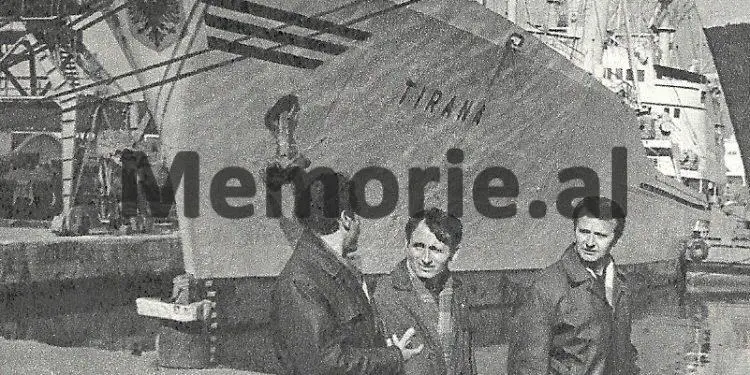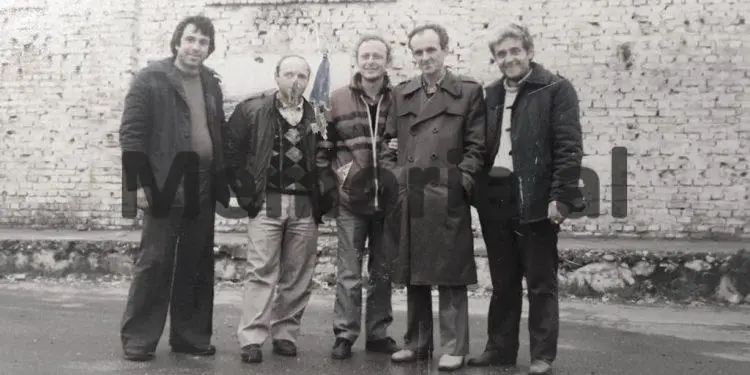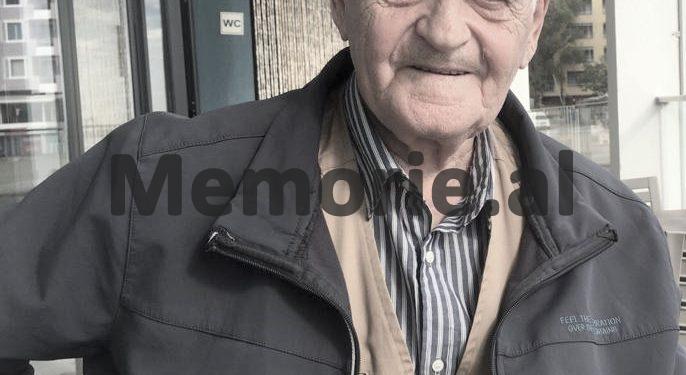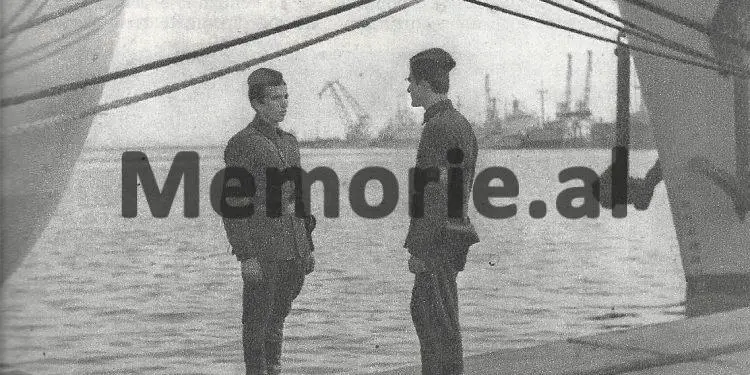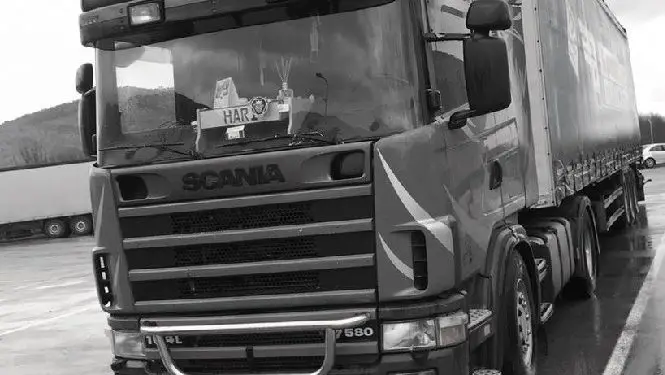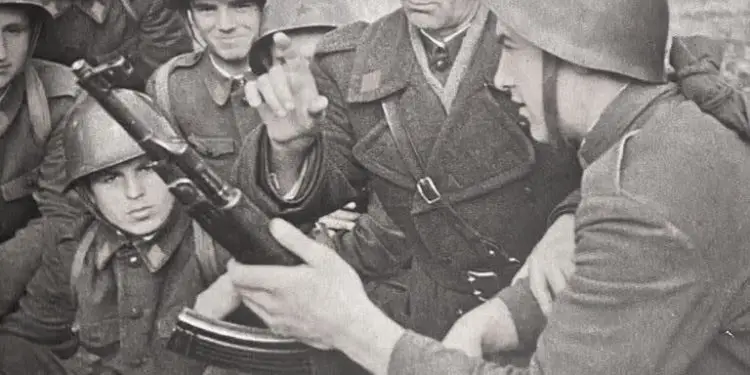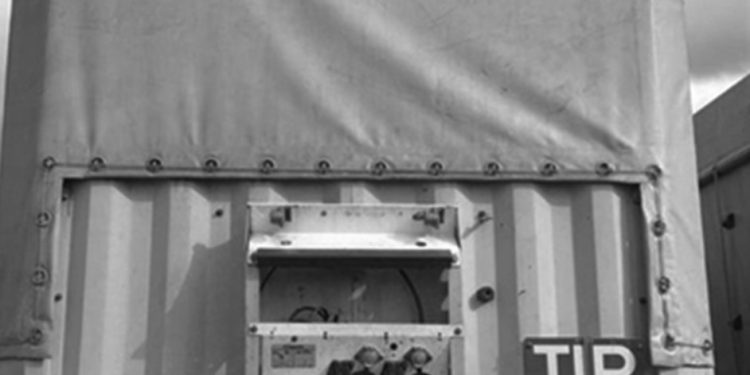By Dashnor Kaloçi
Part four
The confession of Halil Rrahman, the former soldier of the Security Battalion: “After the ship ‘Miami’ sold cigarettes to the Italian mafia in neutral waters, it returned to us at ‘Wharf Zero’, where it delivered the payments in dollars to the three people, who were …”!
Memorie.al / “Taking into account the fact that I myself served in the Tirana Prison (‘Ward 313’), as a guard officer, for the entire period of more than one year (1982-’83) during which the investigative process took place and judiciary of the so-called “Kadri Hazbiu Hostile Group”, I say with conviction that the former Prosecutor General of the Republic, Rrapi Mino, has not told the truth. He wanted to justify himself with what he said, since, during the entire period of time that we were present there, we heard screams from the convicts, which was easily understood as coming from the violence and torture that was inflicted on them. Likewise, from my fellow officers and various soldiers who served inside and outside the prison at that time, I heard that, after the trial against the “enemy group of Kadri Hazbi” (which took place inside the premises of that prison) ended , one day after the death sentences of Kadri Hazbiu, Feçor Shehu, Llambi Ziçishti and Llambi Peçini were heard from their cells, cries, shouts and screams were heard, such as: “O Enver Hoxha, help us spare our lives”, “O Hekuran Isai, help, spare our lives, don’t shoot us”, etc., of this nature. Likewise, to my knowledge, Kadri Hazbiu was taken out of Tirana prison dead on the night of September 9, 1983, and his corpse was then sent to the “Executive Committee” facility in Linza, next to the Security Battalion where were the secret tunnels where Feçor Shehu, Llambi Ziçishti and Llambi Peçini were shot, in the same place where Beqir Balluku, Petrit Dumen and Hito Çakon were also shot years ago”.
Continues from last issue
Mr. Rrahmani, the company or firm that brought the loads of cigarettes to Hani e Hoti, to whom did the state belong, with whom did the Albanian state contract for the import of cigarettes?
The big vehicles loaded with cigarettes, (where each of them took up to 1,400 packs), came mainly from Switzerland, which had a monopoly on cigarettes, which were imported from the USA, as a distributor, for all of Europe. From Switzerland, by land, they passed through the territory of Austria and the former Yugoslavia, to arrive at the Border Crossing Control point at Hani i Hoti Customs. The company contracted by the Albanian state to import cigarettes and bring them here was a Swiss company, the drivers of the vehicles were from different countries, such as Dutch, Turkish, German, Austrian, etc.
The owner of the company was Swiss, an elderly man, polite and communicative with us. We often sat with him, for lunch and dinner, at the Inter-club or at some other hotel in the Durrës beach area (he was accompanied by an Albanian translator of French). Some of the vehicles he used to bring cigarettes here were refrigerator trucks and on the way back, he loaded them with tomatoes or other greens, having previously signed contracts with our authorities. During the time we accompanied him, he used to smoke his pipe, while he gave us gifts, some packs of cigarettes from the ones they brought here.
Whose country was the ships that took the cargoes of cigarettes?
The ships that came to pick them up at the Port of Durrës, at “Kalata Zero”, were all with Greek flags and Greek crews. Apart from them, there was also a small sailing ship, which was Spanish and had only two captains on board, they came every three months to receive the next shipment of cigarettes. They came by sailing ship, not that they didn’t have speedboats, but they camouflaged themselves, supposedly as tourist ships, in order not to be caught by the Italian coast guard, for the smuggling they did.
Who supervised the loading of these ships at “Wharf Zero”?
Just me and no one else. All the time the ships or the Spanish ship was being loaded, I stayed there, supervising the process of our work, which was carried out without the slightest problem.
Were other boats coming to be loaded with cigarettes?
Apart from these three or four Greek ships (where one of them was named “Mayemi”) and the Spanish sailing ship, during all those years that I have served there, no ship or boat has come to be loaded with cigarettes.
Before the 90s, there was talk in Durrës about a boat loaded with cigarettes, which got stuck in the sand on the seashore, near Bisht Palla?!
I know the history of this boat, we went and took it out with an excavator and then sent it to the Port of Durrës, where it was repaired and then its Italian owners came and took it. This boat and other boats of the Italian mafia, (mostly Neapolitans, Puglia, Sicilians, etc.), came to neutral waters, and there they were loaded with cigarette cases from Greek ships, which we had loaded, which they sold to them with cash.
Then the Italian boats would return to the shores of their country, smuggling them through secret places to avoid being caught by the Guarda di Finanza or the coast guards. But, there were many cases when those boats were chased to catch them, and often they, to escape the pursuit, entered our waters, even to the seashore, such as the boat that went out to Bisht Palle .
In July-August 1982, it is said that the Albanian border guards killed an Italian citizen and arrested another, who had come to the Albanian coast with their boat, precisely for smuggling cigarettes, why was this happening?!
At the time this event happened, I had not yet arrived at the Durrës checkpoint, but I was still in the Security Battalion in Linza, but then I also heard about this event. It was said that, that boat with those two Italian citizens, was followed by the Italian Guarda di Financa, because they were involved in cigarette smuggling and to escape their pursuit, they tried to enter the Gulf of Vlora, near Karaburun.
The Albanian coast guards of the Border, having no signal of their arrival, thought they were border violators and shot them, killing one of them. The event is really serious, but at that time, so were the border rules of the Albanian state. Unfortunately, the soldier killed and received a reward, and was even decorated by the Presidium of the People’s Assembly for what he had done.
The big Greek ships had such problems, did they follow them too?!
They had no problems, they sold the goods, i.e. cigarette packs, in neutral waters where no one had the right to seize them, and then they returned to Durrës to receive the next shipment, with cash in hand , (payment was made in US dollars only), all payment for the goods we had given them.
Who took the dollars and do you know how much the Albanian state profited from that cigarette smuggling?
In order to receive the payment from us, at the “Zero Pier”, which was guarded by soldiers of the Border Check Point and where no one could approach, three people, who were authorized by the state, constantly came. The first was an employee of the Albanian State Bank, the second was from Durrës Customs and the other was a representative of ALBTRANS.
They took the dollars in their suitcases and left in the car of the Ministry of the Interior, which no one had the right to stop. Not even us, no one stopped us in any environment of the Sea Port, on the contrary, all doors were opened for us and we were all respected. To my knowledge at that time, the Albanian state was said to earn over 12 million dollars a year from this cigarette smuggling, which continued from 1965 to 1991.
How could it be justified, in the eyes of the people, who watched as Durrës coast was filled with cigarette packs of foreign brands?!
As far as I know, at that time, to hide that thing, the official authorities said that; that a foreign ship had suffered a breakdown and had run aground in Italian waters, dropping most of its cargo of cigarettes into the sea. But this thing was simply for public consumption, since all of Durrës knew how and when those packs of cigarettes fell into the sea.
ALBTRANS, you said that it was an enterprise under the Ministry of Internal Affairs, created exclusively for cigarette smuggling, who ran it before and where were its offices?
ALBTRANS, since its creation until I served in that department, has been directed by several directors, all military personnel of the Ministry of Internal Affairs, but in civilian clothes. The first one who directed it was Tahir Malo, after him there were Qazim Muftiu, Lorenc Nënshati and Mëno Dedaj, who was the last one to serve in that position. Likewise, Isa Lika, Josif Dede, Koço Eftimi and Naim Furxhiu have also served as their subordinates at different times. Initially, the directorate of ALBTRANS was in the building of the Club of the Ministry of Internal Affairs in Tirana, which was there until 1982, when Lorenc Nënshati was appointed as its head.
In 1982, when the volume of work of that enterprise intensified, the smuggling of cigarettes increased, the director moved his offices to a building on “Fortuzi” Street. This was done in order to preserve the state secret, since there were offices in the Ministry of Internal Affairs, that thing was more compromised, because foreign citizens came to its offices, from Italy, Switzerland, etc., who concluded contracts, etc. .
The heads of ALBTRANS came to your department in Durrës?
They came constantly, because they were the main leaders of all that activity that our department carried out, since at any time, we were under their orders, for the work that was assigned to us, and they controlled the implementation of the tasks and the work process. In the period that I served there, Lorenc Nënshati, Rrapo Damo, Nikolla Shkurti, who was the commander of the Command in the Ministry of Internal Affairs, etc. came more often.
Why was your department assigned that location and not, for example, within the territory of the Sea Port, where the work object of the effective soldier and officer of your department was?
In Rrashbulli Hill, there used to be a department with several silos, warehouses and large warehouses of the Department of the Interior of the Ministry of Internal Affairs, which were then transferred to the village of Mullet in Tirana, a department which has been 90s and is known as the ‘Ward 100’ Mullet. These premises, which remained empty in 1970, when the Security Battalion was established in Linza, Tirana, passed to him, being coded as ‘Department 100/1’. I think that the main reason that that department was deployed in that country was to protect the state secret.
The department was installed there on Rrashbulli Hill, to be as far away as possible, so that people would not see all those large vehicles entering and leaving that military department, but also at a not great distance from the Port of Durrës. That place had been found, as a strategic point that was far from the city, but also secured and protected by several other military units.
How long have you served and continued smuggling cigarettes from the Albanian state, through this department?
I was in office until 1991, when the political system in Albania was being changed, which caused the new government that came to power to stop smuggling immediately and as a result, that department lost its function and then he the territory was used for parking and storage of private vehicles, which the State Police seized. But the smuggling of cigarettes continued, this time from our neighbors, Montenegro.
Mr. Rrahmani, we thank you for this long interview and for everything you brought to our readers.
I also thank you, as I felt obliged to say these things publicly, as far as I knew and what I have seen, throughout my career of over 20 years in the bodies of the Ministry of Internal Affairs. Memorie.al




